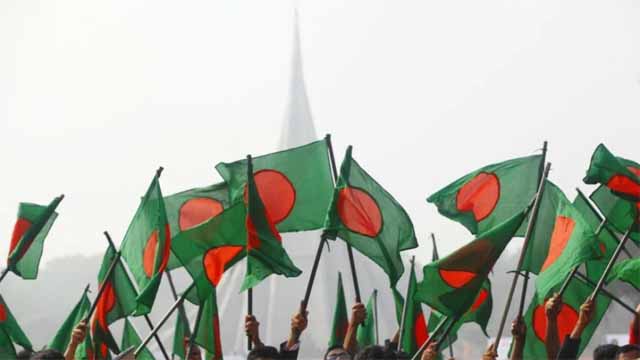
Memories of victory
Published:
১৮ ডিসেম্বর ২০২৩, ১২:১৯

Now, we mark Victory Day every year to remember that it was not easy; that the nationhood of Bangladesh came at an extremely steep price, and the legacy of 1971 is one our people can never be allowed to forget.
February 21 is a day of mourning, and March 26 is a day to remember the beginning of a struggle, but December 16 is a day for unfettered patriotism -- a day to let spirits soar, and a day to renew our commitment to build up our country as one that dreams are made of.
This should not surprise any outside observer, there is a good and simple reason Bangladeshis have a more immediate and direct sense of patriotism than the majority of nations in this world -- our liberation struggle took place within living memory.
Whether or not you (or I) were alive at the time of the Liberation War, and whether or not you have firsthand memories of the time, you almost certainly know someone -- a parent, a relative, an acquaintance, who remembers December 16, 1971, like it was yesterday.
That explains our passion as a nation to some degree; to people above a certain age, the origin story of Bangladesh is not merely history -- it is autobiography.
And this is why even when we talk about the future, we as a nation seem unable to do so without talking about the past.
But people are mortal, and the living, breathing generation that remembers 1971 will not be around forever; as for younger people carrying the patriotic torch forward, things will not be quite the same as it once was.
The math is quite simple -- our struggle for liberation culminating in eventual victory took place 47 years ago, which means that if the nation-state of Bangladesh were a person, it would be smack in the middle of middle age.
Anyone who remembers the war in 1971 is either in the upper end of middle age, or elderly, or extremely old; and there will be a time, very soon, that there will only be a handful left.
The relentless march of time stops for no one -- and what will victory mean for us then?
The new generation, free from the ways of their parents and grandparents, will, no doubt, transform and reinvent what it means to be Bangladeshi.
Older people may furrow their brows and cluck their tongues in displeasure at the thought of their definition of patriotism being changed by young people who were not even there to see it all, but change is inevitable, and it is best to embrace it.
This embracing of change comes about through a change in attitude -- by realizing that your brand of patriotism is not necessarily the only way to love one’s country, that the way you look at or feel about something is not the only way to look at and feel about something.
As anyone who has picked up a few books or more in their life knows, there is infinite diversity of thought and ideology in the world, and holding a fresh or dissenting opinion on how best to progress does not automatically make a person unpatriotic, anti-state, or a razakar.
No matter how much older people in this country wish to cling on to power and importance, as certain as death and taxes is the fact that the future of this country lies in the hands of young people, and the way they see, feel about, and write about 1971 will be different from someone writing from the raw, unvarnished memories of what it was like to be there at the time.
These thoughts, perspectives, solutions, ideologies will not be any less real, and they will not be any less patriotic.
Hopefully, they will help us tackle some of the challenges and problems of this country we have been unable to satisfactorily address thus far.



Comment: